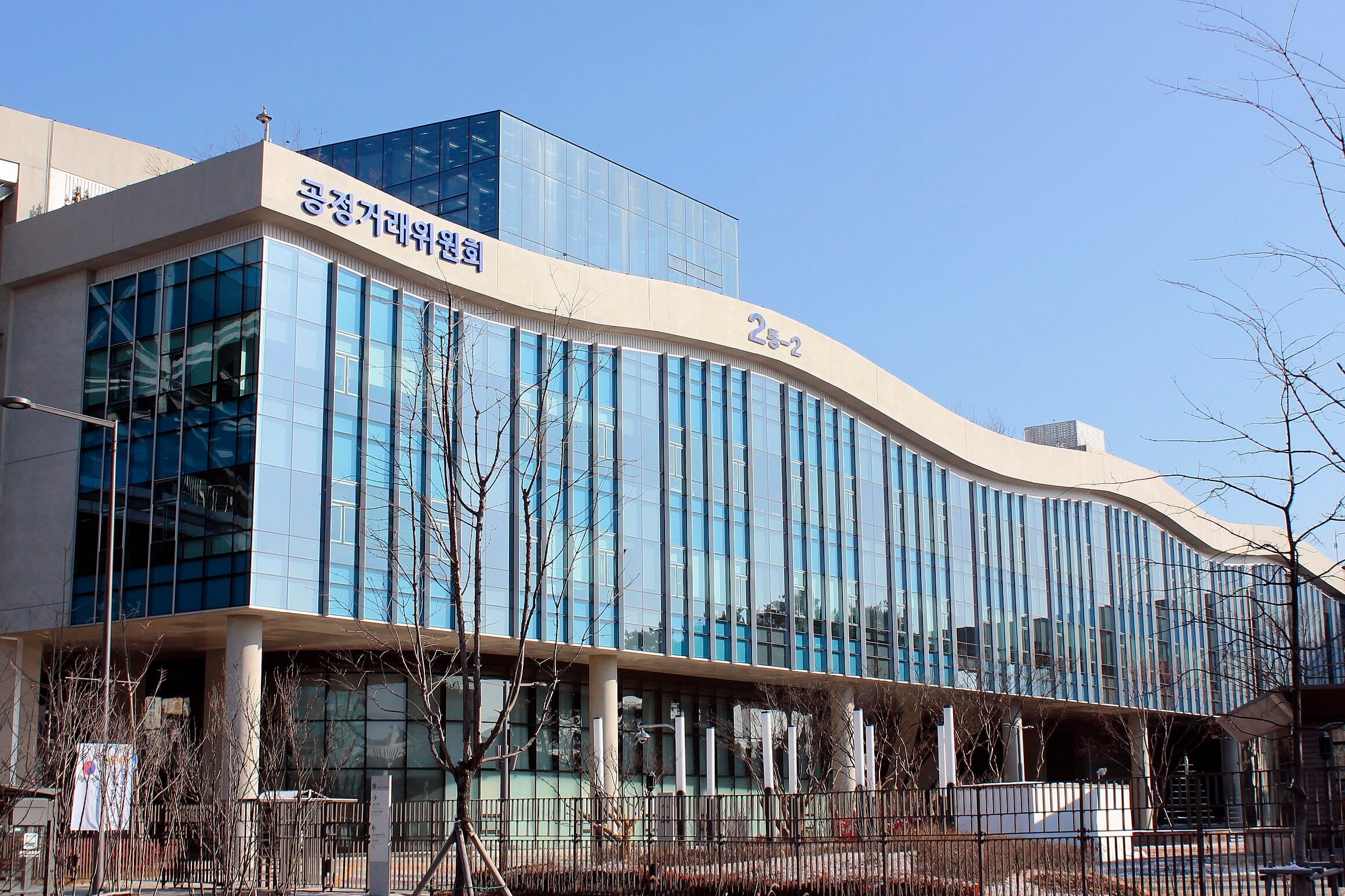South Korea’s Digital Regulation Proposal Sparks U.S. Pushback
South Korea’s proposed online platform regulation has drawn less attention than Trump’s tariffs, but may play a role in trade negotiations.

Although the Trump administration’s tariff proposal has sucked much of the wind from U.S.-South Korea trade discussions, a different battle—over South Korea’s proposed online platform regulation—has been brewing for more than a year. The current legislation, known as the Monopoly Regulation and Fair Trade Act (MRFTA), has drawn the ire of several major U.S. tech companies, including Google, Apple, and Meta. These companies have criticized the act as discriminatory and urged the U.S. Chamber of Commerce, industry lobby groups, Congress, and the U.S. trade representative to push back against it.
The potential fight among U.S. big tech companies, South Korean regulators, and the Trump administration bears greater attention given the implications for ongoing tariff negotiations, digital trade policy, and the Trump administration’s approach to the evolving global online platform regulatory landscape.
Brewing U.S. Opposition to Digital Regulation
In December 2023, the Korea Fair Trade Commission (KFTC) unveiled its Platform Competition Promotion Act, which recommended the South Korean government pass legislation that would develop ex ante regulatory standards for online platforms. Partially modeled after the European Union’s Digital Markets Act, the Platform Act’s “ex ante” designation empowered the KFTC to regulate companies even “before the fact of violation.” The KFTC aimed to limit what it considered unfair business practices while enabling domestic startups and small and medium-sized enterprises to grow.
Strong backlash from both domestic and foreign platform companies eventually led the KFTC to revise their proposal, resulting in the current MRFTA. Although the MRFTA excludes the earlier language of ex ante regulation, it continues to restrict dominant platforms from prioritizing their own products over competitors’ (that is, self-preferencing) and bundling products and services together. It also requires platform companies to include most-favored nation clauses to ensure that the terms provided to other countries also apply in South Korea.
Additionally, some opponents of the MRFTA have framed the legislation as a national security risk, suggesting that it may unintentionally benefit China. Chinese digital firms currently fall below the KFTC’s proposed regulatory threshold for monthly average users. American tech firms have argued that the MRFTA offers companies such as TikTok, Alibaba, and Temu an opportunity to expand their digital footprint while major U.S. platforms are restricted by the regulation.
The KFTC states that the MRFTA will prevent monopolization by promoting fair and open competition, protecting consumer rights, and supporting innovation and growth—without targeting or discriminating against U.S. companies. Although major South Korean domestic platforms such as Naver and Kakao are also impacted by the MRFTA, companies including Apple, Google, and Coupang—a U.S.-based e-commerce company with major operations in South Korea—have argued that detailed thresholds for market share fall largely on U.S. firms, while avoiding capture of other large domestic players. As U.S. tech companies have stated, KFTC’s updated “ex post” determination gives the optics of regulation that appears origin neutral but in practice continues to disproportionately impact U.S. firms.
Beyond tech companies themselves, opposition to digital trade regulation has gained traction within the U.S. government. In Congress, Rep. Carol Miller (R-W. Va.) introduced the U.S.-Republic of Korea Digital Trade Enforcement Act in September 2024 opposing South Korea’s proposed regulatory framework. The bill called on the U.S. government to take retaliatory measures should South Korea follow through with the MRFTA. More recently, on May 7, Miller (re)introduced another bill, this time with bipartisan co-sponsorship, aimed at protecting U.S. digital companies from regulatory measures such as the MRFTA.
The second Trump administration’s “America First” platform has reinvigorated U.S. tech companies’ resistance to digital platform regulation in South Korea and elsewhere. Whereas the Biden administration may not have viewed the MRFTA as a battle worth fighting—given the more than $100 billion South Korean companies had invested in the U.S. during President Biden’s tenure—the Trump administration appears uninhibited in making demands of allied nations.
The U.S. seems particularly well poised to address the MRFTA in the context of bilateral trade. U.S Trade Representative Jamieson Greer stated on April 9 that President Trump would not permit “the European Union, or Korea, or any other jurisdiction set the rules for digital trade.” Prior to becoming the trade representative, Greer also argued, “I would urge caution on the part of Korean officials to avoid another clash. There is no good path forward where Korean regulations treat U.S. companies more restrictively compared to domestic—and Chinese—companies operating in the digital space.”
Navigating U.S.-South Korea Economic Relations in a World of Tariffs
A coalition of U.S. tech firms, industry groups, lobbyists, Congress, and the government now appear poised to make their case against the MRFTA to South Korea, with bilateral trade negotiations underway. Then-Acting President Han Duk-soo, who spoke over the phone with Trump on April 8—shortly after the announcement of the U.S. administration’s “reciprocal tariffs”—indicated that his country would not retaliate against the tariffs. Han stated that his country would “cooperate with the United States and President Trump to make sure that we can find some of the solutions to arrive at the win-win situations.” Shortly thereafter, South Korea’s ministers of finance and trade arrived in Washington in hopes of negotiating down Trump’s 25 percent tariffs on South Korean goods announced on “Liberation Day.”
Just as South Korean negotiators have invoked the U.S.-Korea Free Trade Agreement (KORUS) and World Trade Organization rules in calling for tariff reductions, U.S negotiators may also argue that South Korea must not discriminate between domestic and U.S. online providers or between foreign digital providers from different nations.
For now, South Korea’s upcoming snap elections on June 3, and additional tariff negotiations with the Trump administration, make it unlikely that South Korea’s National Assembly will take up the MRFTA any time soon. In contrast to the EU—which is prepared to weaponize the Digital Markets Act (DMA) and punish U.S. tech companies in retaliation for U.S. tariffs—South Korea is instead adopting a more conciliatory approach. By playing ball with Trump, Seoul seeks to protect its economic interests while sustaining U.S.-South Korea ties.
Indeed, both U.S. and South Korean companies seek to avoid major disruptions to bilateral trade, which amounted to nearly $200 billion in goods in 2024. But U.S. tariffs still loom ahead, and progressive South Korean legislators—tired of the U.S.’s coercive tactics—may choose to take up the MRFTA following elections, particularly if the Democratic Party of Korea’s leading candidate, Lee Jae-myung, wins the election.
Doing so, however, may undermine the broader U.S.-South Korea economic relationship, as the White House has made clear its position on nontariff barriers. In a Feb. 13 memorandum, the Trump administration threatened to impose retaliatory measures on trade restrictions, including nontariff barriers in the digital space. If pushed forward, the MRFTA may draw the ire of the Trump administration while undercutting the South Korean government’s efforts to negotiate lower tariffs, placing an additional strain on U.S.-South Korea relations. Nontariff barriers are likely to be included in ongoing bilateral trade negotiations, as addressed in April’s 2+2 meeting between Treasury Secretary Scott Bessent and U.S. Trade Representative Greer and their South Korean counterparts.
At stake for the U.S. is the diffusion of EU-inspired digital platform regulation under the DMA—or the so-called Brussels effect. In addition to South Korea, other tech-savvy countries, such as India, have proposed anti-competition laws to ensure fair and transparent competition in their digital market spaces. Even with the KFTC’s shift away from ex ante regulation, there is growing fear in the U.S. that passage of South Korea’s MRFTA might trigger a domino-like effect and provide other countries in Asia additional leverage—and a working template—to restrict U.S. companies in domestic markets.
***
South Korea has a right to regulate its digital space—but such regulation should not undermine transparency and fair competition. Korea is not the EU; partnering with major U.S. platforms has enabled South Korean goods and products, including Samsung mobile devices and tablets and hit K-dramas on Netflix, to go global. Meanwhile, to further encourage South Korean investments in the United States—an amount that exceeded $114 billion the past three years—the Trump administration will need to provide some flexibility on tariffs in return for South Korean concessions, including in the digital trade space.



.jpg?sfvrsn=818c05df_5)

